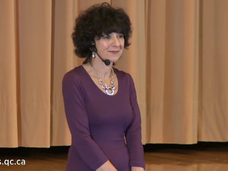
The Diagnostic and Statistical Manual of Mental Disorders (DSM-IV), includes two official Eating Disorder (ED) syndromes: Anorexia Nervosa (AN) and Bulimia Nervosa (BN). A third diagnosis, Binge Eating Disorder (BED) is almost certain to be recognized officially as a distinct ED syndrome in the fifth edition of DSM due in 2013.
What are eating disorders?
AN, BN, and BED are polysymptomatic syndromes, defined by maladaptive attitudes and behaviors around eating, weight and body image, but generally including nonspecific disturbances of self-image, mood, impulse-regulation, and interpersonal functioning.
Eating disorders coexist with other potentially serious problems like depression, anxiety, alcohol, and drug abuse. They go far beyond excessive dieting. They must be treated to prevent serious physical, psychological or social consequences.
Some people may exhibit symptoms of more than one eating disorder.
Anorexia Nervosa
Anorexia Nervosa is defined by a relentless pursuit of thinness and a morbid fear of the consequences of eating, usually expressed as a dread of weight gain or obesity. The result is a willful and often dramatic restriction of food intake.
The person with AN imposes upon herself a state of gradual weight loss and sometimes dangerous emaciation. At the core of the behaviors seen in AN appears to be a literal phobia of weight gain. it is so intense that the individual avoids behaviors and situations that could lead to weight gain: eating unfamiliar foods, eating without exercising, etc. Consequently, she incrementally loses weight.
Bulimia Nervosa
Bulimia Nervosa is characterized by consumption of excessive, sometimes massive quantities of calories accompanied by a terrifying sense of dyscontrol. By definition, people with bulimia compensate for overeating through self-induced vomiting, laxative misuse, intensive exercise, fasting, or other means.
Contrary to people with anorexia, BN is diagnosed in relatively normal or overweight individuals.
Binge eating can provoke profound feelings of shame, anxiety or depression, and dramatic shifts in the sufferer’s sense of self-worth and well-being, in concert with her sense of control around eating.
AN and BN share in common a core preoccupation with body shape and weight, and the compulsion to diet.
Binge Eating Disorder
Like bulimia, Binge Eating Disorder is characterized by recurrent eating binges. However, in BED compensatory behaviors such as vomiting, exercise or fasting are absent, so that BED is associated with eventual obesity.
Defining characteristics include:
- Eating more rapidly than normal
- Eating until uncomfortably full
- Eating when not hungry
- Eating alone due to embarrassment around the quantity one eats
- Feeling intense distress, guilt, disgust, or depression after eating
Watch other Mini-Psych School lectures.
Diagnostic criteria of Eating Disorders
These criterias come from DSM-IV
Anorexia Nervosa
- Refusal to maintain body weight at or above a minimally normal weight for age and height: weight loss leading to maintenance of body weight less than 85% of that expected; or failure to make expected weight gain during period of growth, leading to body weight less than 85% of that expected
- Intense fear of gaining weight or becoming fat, even though underweight
- Disturbance in the way in which one's body weight or shape is experienced, undue influence of body shape on self-evaluation, or denial of the seriousness of the current low body weight
- In postmenarcheal females, amenorrhea, i.e., the absence of at least three consecutive menstrual cycles
Bulimia Nervosa
- Recurrent episodes of binge eating. An episode of binge eating is characterized by both of the following:
- Eating, in a discrete period of time (e.g., within any 2-hour period), an amount of food that is definitely larger than most people would eat during a similar period of time and under similar circumstances
- A sense of lack of control over eating during the episode (e.g., a feeling that one cannot stop eating or control what or how much one is eating)
- Recurrent inappropriate compensatory behavior in order to prevent weight gain, such as self-induced vomiting, misuse of laxatives, diuretics, enemas, or other medications; fasting, or excessive exercise
- The binge eating and inappropriate compensatory behaviors occur, on average, at least twice a week for three months
- Self-evaluation is unduly influenced by body shape and weight
- The disturbance does not occur exclusively during episodes of Anorexia Nervosa
Binge Eating Disorder
- Does not exercise control over consumption of food
- Feels loss of control over eating during binge
- Eats an unusually large amount of food at one time, far more than an average person would eat
- Eats much more quickly during binge episodes than during normal eating episodes
- Eats until physically uncomfortable and nauseated due to the amount of food consumed
- Eats when depressed or bored
- Eats large amounts of food even when not really hungry
- Often eats alone during periods of normal eating, owing to feelings of embarrassment about food
Mini-Psych School videos
| Body image and self-esteem (2013) | Genes, environment and gender (2011) |
Need help?
All requests must first go to the mental health team in your CSSS. You can also contact a crisis centre, the support groups McGill Mental Health Service, Anorexia and bulimia Quebec, Programme d'intervention des troubles des conduites alimentaires (PITCA), the National Eating Disorder Information Center (NEDIC), the Academy for Eating Disorders (AED), the CHU Saint-Justine Mother and Child University Hospital center - Adolescence Medicine Clinic, McGill University Health Centre - Eating Disorder Clinic Adolescent - MCH or choose "Support" from the pull-down menu of the Community ressources
[Eating Disorders: what are they?] [Eating Disorders: causes and symptoms] [Eating Disorders: treatments] [Eating Disorders: advice for the family]




